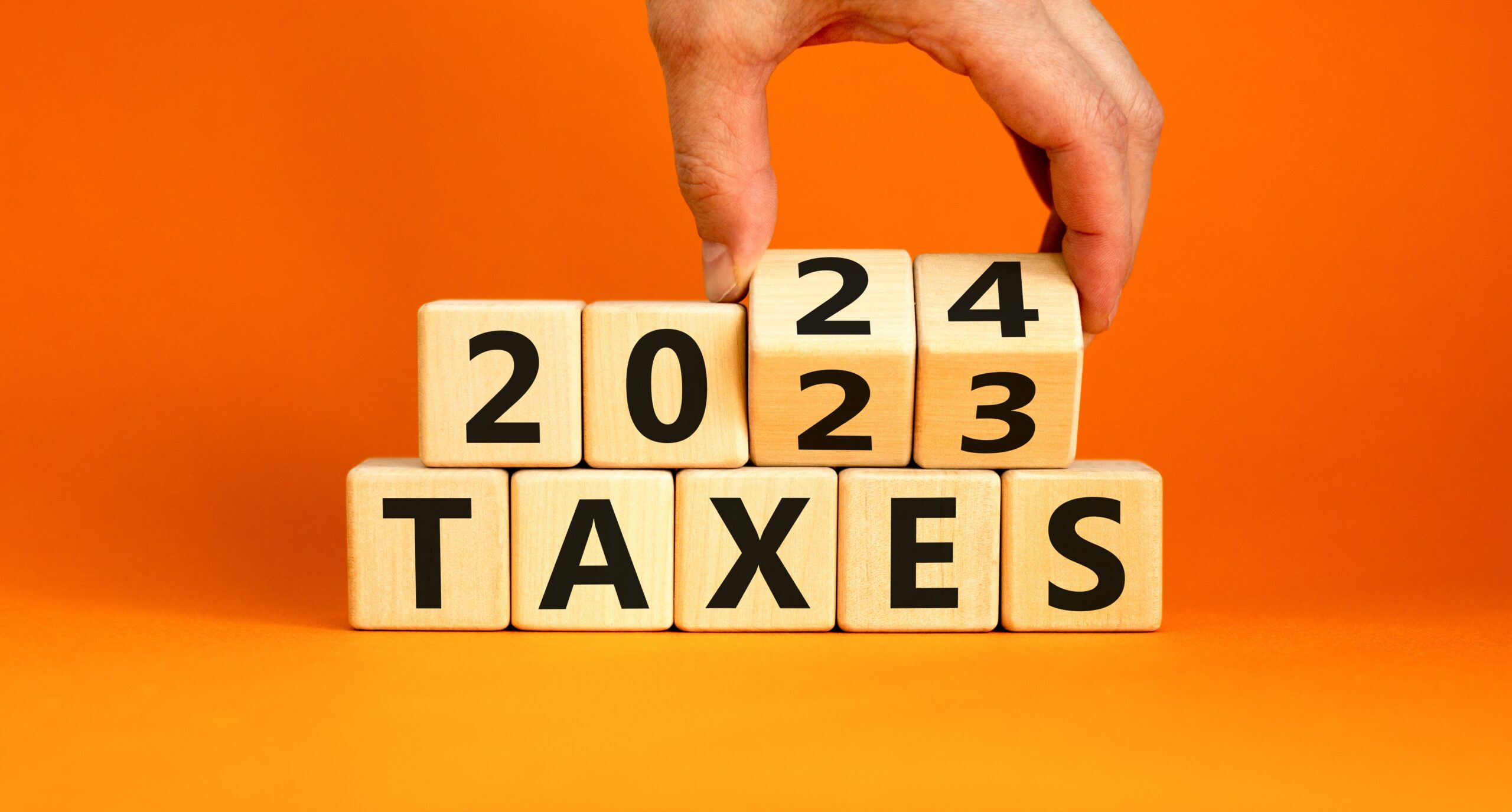The IRS has announced over 60 revised annual tax provisions for 2024 due to inflation. This includes increased tax rates for various income levels, a new tax on oil & petroleum products, estate tax & gift exclusions, and more. These go into effect for returns filed in 2025 for the tax year of 2024. The new changes are important for taxpayers to financially plan ahead.
- The standard deduction for married couples in 2024 is rising to $29,200, an increase of $1,500. Single taxpayers and married individuals filing separately rises to $14,600, an increase of $1,100 from 2023.
- Starting in 2024, the dollar limitation for employee salary reductions for contributions to health flexible spending arrangements increases to $3,200. Participants who have self-only coverage in a Medical Savings Account must have a deductible no less than $2,800 but not more than $4,150.
- The Alternative Minimum Tax exemption amount for tax year 2024 is $85,700 and begins to phase out at $609,350. For married couples filing jointly, the 2024 Alternative Minimum Tax exemption amount is $133,300 and the exemption begins to phase out at $1,218,700.
- For the tax year 2024, the maximum Earned Income Tax Credit amount is $7,830 for qualifying taxpayers who have three or more qualifying children.
- Additionally, the monthly limitation for transportation fringe benefits and monthly limitation for qualified parking increases to $315.
- The foreign earned income exclusion for 2024 is $126,500, increased from $120,0900 for tax year 2023.
- Estates of decedents who die during 2024 have a basic exclusion amount of $13,610,000.
- The annual exclusion for gifts increases to $18,000 for calendar year 2024.
- The maximum credit allowed for adoptions for tax year 2024 is the amount of qualified adoption expenses up to $16,810.
However, not everything is changing. Certain items adjusted for inflation in the past are not adjusted as of now. The Tax Cuts and Jobs Act states that the personal exemption remains at 0, and there is no limitation on itemized deductions.
TAX RATES FROM 2023 TO TAX YEAR 2024
| 2023 | 2024 |
| 37% over $578,125 (individuals)
Over $693,750 (married couples) |
37% over $609,350 (individuals)
Over $731,200 (married couples) |
| 35% over $231,250 (individuals)
Over $462,500 (married couples) |
35% over $243,725 (individuals)
Over $487,450 (married couples) |
| 32% over $182,100 (individuals)
Over $364,200 (married couples) |
32% over $ 191,950 (individuals)
Over $383,900 (married couples) |
| 24% over $95,375 (individuals)
Over $190,750 (married couples) |
24% over $100,525 (individuals)
Over $201,050 (married couples) |
| 22% over $44,725 (individuals)
Over $89,450 (married couples) |
22% Over $47,150 (individuals)
Over $94,300 (married couples) |
| 12% over $11,000 (individuals)
Over $22,000 (married couples) |
12% Over $11,600 (individuals)
Over $23,200 (married couples) |





